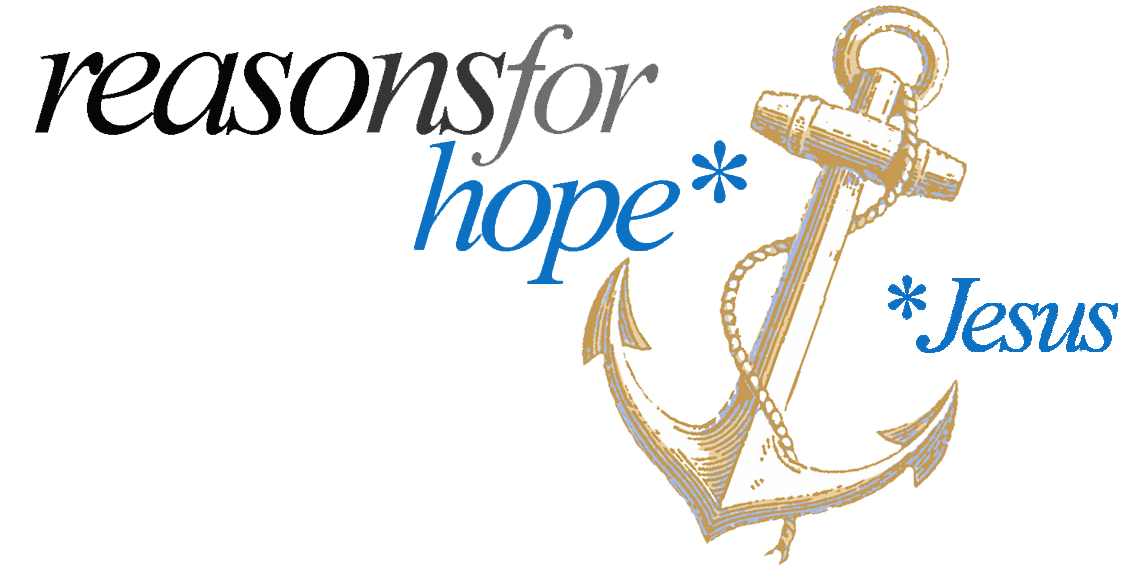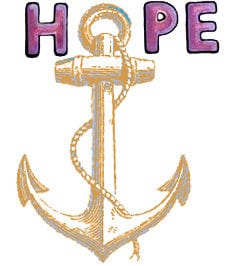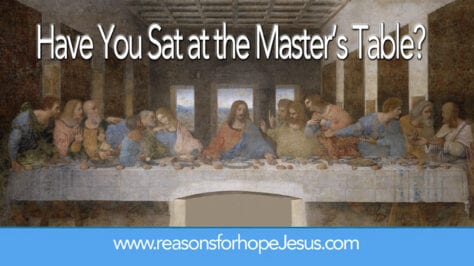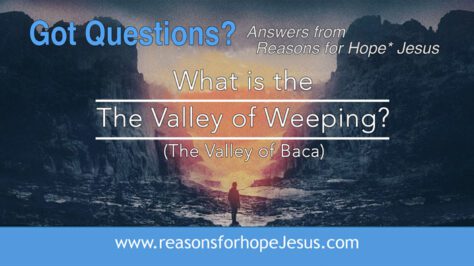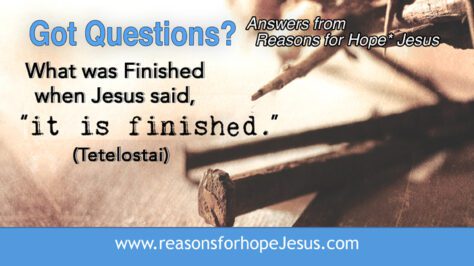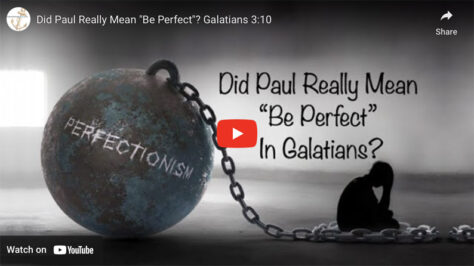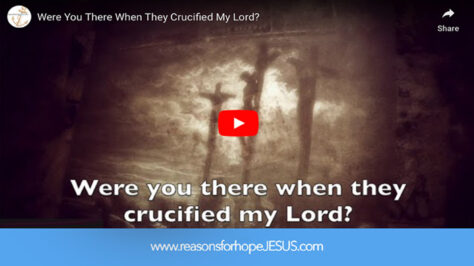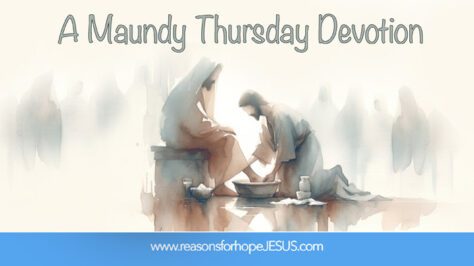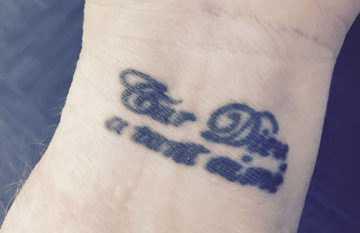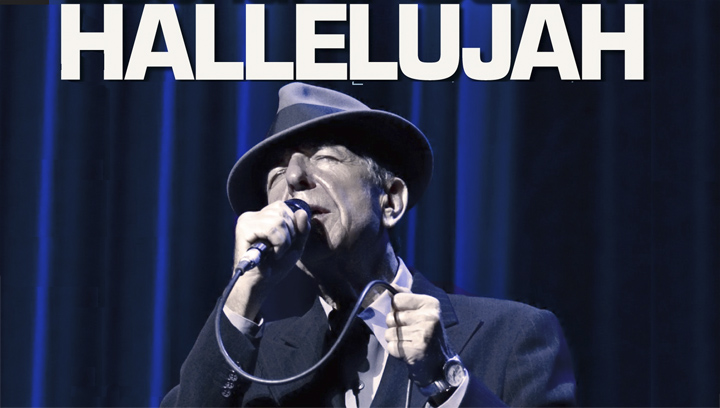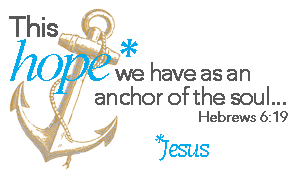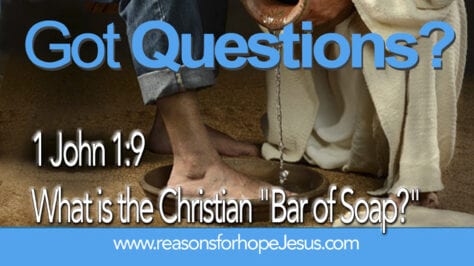
1 John 1:9 If we confess our sins, he is faithful and just to forgive us our sins, and to cleanse us from all unrighteousness.
How does 1 John 1:9 “fit” if Jesus paid for all of our sins (past, present, and future) on the cross? That verse is often called, “The Christian Bar of Soap.” We’ll get to explaining that (below), but first, let’s look at the verse in context. That verse is from the Apostle John in the first of three letters. John wrote this letter to strengthen believers in what they knew to be true. In fact, the word “know” is used 38 times in this letter and 1 John 1:9 is a verse that all Christians should know and remember. It certainly is a wonderful verse of hope and assurance. But it’s also a verse that is often misunderstood and frequently misquoted (out of context). We’ll explain the verse, but first, let’s start with what we know to be true: Jesus paid for all of our sins on the cross. When He declared, “it is finished,” He meant just that. All of our sins — past, present, and future — were nailed to His cross and His blood was shed to make atonement (payment) for them. This is confirmed by Paul in his letter to the church at Colossae.
Colossians 2:14 Blotting out the handwriting of ordinances that was against us, which was contrary to us, and took it out of the way, nailing it to his cross
What did Paul mean by “…the handwriting of ordinances that was against us?” He was referencing a handwritten certificate of debt, which served as an acknowledgment of debt in the time in which he lived. It was a document signed by the debtor. In our day we would call it a promissory note, or a loan document. It represented a debt that needed to be paid.
The Ordinances
What was the debt that needed to be paid? It was obedience to the Mosaic Law, the Ten Commandments. The Ten Commandments encompass all of God’s ordinances for holy living. Man fails terribly at keeping them and, therefore, is not capable of paying the debt.
In His humanity, Jesus kept the Law perfectly. Thereby, He fulfilled the Law (Matthew 5:17, Hebrews 8:13) and was proven by the Law to be the pure Lamb of God, making Him acceptable unto God to pay the sin debt of mankind. When Jesus shed His blood on the cross, He canceled the certificate of our debt (“nailing it to His cross”). It was by Jesus’ death that our penalty for sins was paid and our debt canceled. (Read more: The Gift of SalvaTION: Justification & Imputation) The words of this old hymn so beautifully proclaim this:
What was the debt that needed to be paid? It was obedience to the Mosaic Law, the Ten Commandments. The Ten Commandments encompass all of God’s ordinances for holy living. Man fails terribly at keeping them and, therefore, man is not capable of paying the debt. So Jesus paid it for us.
In His humanity, Jesus kept the Law perfectly. Thereby, He fulfilled the Law (Matthew 5:17, Hebrews 8:13). By doing so, He was proven by the Law to be the pure and perfect Lamb of God. This made Him acceptable unto God to pay the sin debt of mankind. Jesus took our debt (our sins) upon HImself and when He was nailed to the cross, and His blood was shed, He canceled the certificate of our debt (all referenced in Col 2:14). It was by Jesus’ death that our penalty for sin was paid and our debt canceled. (Read more: The Gift of SalvaTION: Justification & Imputation) The words of this old hymn so beautifully proclaim this:
Gone is all my debt of sin,
A great change is wrought within,
And to live I now begin,
Risen from the fall;
Yet the debt I did not pay—
Someone died for me one day,
Sweeping all the debt away—
Jesus paid it all.
Jesus died and paid it all, yes,
On the cross of Calvary, Oh
And my stony heart was melted
At His dying, dying call;
Oh, His heart in shame was broken
On the tree for you and me, yes,
And the debt, the debt is canceled,
Jesus paid it, paid it all.
Canceled Debt
Before Jesus breathed His last breath, He cried out “tetelostai.” This Greek word is translated, “it is finished.” Ancient tax receipts have been found with “tetelostai” written across them, indicating payment was made in full and the debtor was released from the debt.
Knowing that all of our sins — past, present, and future — are fully paid for, and those who have repented and trusted in Christ have received forgiveness and had their personal debt canceled, let’s return to the question about 1 John 1:9. If “it is finished,” why must we continue to repent to be forgiven of sins?
1 John 1:9
First, let’s understand that John’s letters are written to Christians and they focus on the Christian life after justification (forgiveness of sins and regeneration by the Holy Spirit. Read: The Gift of SalvaTION: Justification & Imputation). The letters focus on the process of sanctification that begins when a person is saved by Jesus (forgiven and regenerated) and lasts until one goes to be with Jesus in Heaven. (Read: What you need to know about Sanctification & Glorification) Our sanctification is worked in us by the power of the Holy Spirit who works in our lives to conform us to the image of Jesus. (Rom 8:29)
We know that in our justification, our sins have been washed away by the blood of Christ and we have been given Christ’s righteousness. (Rev 1:5, Rom 3:22, 2 Cor 5:21) And we know that we are secure in the righteousness of Christ, in which we stand (Eph 4:30). Yet we continue to sin, and sin always leaves a stain. It’s a stain that affects our communion with Christ, but not our union with Him. Our union with Christ is forever clean. We are washed clean of our sins and justified by His blood. However, our communion (our fellowship with Him) needs cleansing from the dirt of ongoing sins.
The Christian Bar of Soap
1 John 1:9 If we confess our sins, he is faithful and just to forgive us our sins, and to cleanse us from all unrighteousness.
This verse is sometimes referred to as “the Christian bar of soap“—and rightfully so. But, what does that mean?
The only “soap” that washes us clean in our justification is the blood of Jesus (Revelation 1:5). There is no other “stain-cleansing agent” for sin’s penalty. John made reference to this in verse 7, …the blood of Jesus Christ His Son cleanses us from all sin.
Verse 9 is not about our salvation. The cleansing of sins in verse 9 is about our sanctification. To better understand this, let’s take a step back in time, to the night before Jesus’ death on the cross, when He taught a glorious lesson about this.
The Last Supper
In the upper room, the night before His death, Jesus shared a supper with His disicples. He also washed the feet of all 12 disciples. When Jesus began to wash their feet, Peter objected saying, “You shall never wash my feet!” Jesus responded by telling him, “If I do not wash you, you have no part with Me.” (John 13:8). Then Peter, in his unbridled love for Jesus, replied, “Lord, not my feet only, but also my hands and my head!” (John 13:9). Then Jesus said to him, “He who is bathed needs only to wash his feet, but is completely clean…” (John 13:10)
Consider now what transpired. Peter did not want his Lord to perform such a menial task. Foot washing was a task always performed by a servant. But when Jesus told him it was necessary, he eagerly desired not only his feet be washed, but all of him. And Jesus said that was not necessary. Look closely at Jesus’ words: “He who is bathed needs only to wash his feet, but is completely clean…” (John 13:10)
When Jesus said, “He who is bathed…is completely clean,” He was speaking of the “bathing” (washing) that would be by His blood (1 John 1:7). Only the blood of Jesus washes away our sins and, as Jesus said, makes us “completely clean.” So if all sins (past, present, and future) are completely washed away, why would Peter need his feet washed?
Dirty Feet
While we remain in this world, we walk a path to our final destination, our heavenly home. But that path is on a cursed earth. And while we have been regenerated, and washed clean, the earth is yet to be restored and the curse removed. Therefore it is dirty and our feet get dirty. Our “dirty feet” are symbolic of our ongoing sin. Living in this broken world and still living in the flesh, we continue to sin. While we are completely washed of sin by Jesus’ blood in our justification, we must be cleansed of sin in our sanctification. First John 1:9 is addressing that cleansing — the “foot cleansing” of a Christian. That’s why this verse is figuratively called “the Christian bar of soap.”
So Where’s the Soap?
1 John 1:9 If we confess our sins, he is faithful and just to forgive us our sins, and to cleanse us from all unrighteousness.
Many suggest that the “soap” is our confession of sin, but I suggest that it is not. If the “cleansing agent in our justification is Jesus’ blood, then the “cleansing agent” in our sanctification must also be of Jesus. If the “soap” is our confession, we get the glory. That just can’t be.
In both our justification and our sanctification, our confession of sin is a demonstration of our hearts, our repentance, and our desire to draw closer to Jesus. It is a demonstration of our unbridled love for Jesus, just as were Peter’s words. And that’s exactly what God desires from us. He wants us to repent, to turn from sin, to seek His forgiveness, and to be restored to a “cleaner” and closer relationship with Jesus.
I suggest that the “cleansing agent” in 1 John 1:9 is the faithfulness and justice of Jesus. Only Jesus has the power to “forgive us our sins.” So He gets all the glory!
1 John 1:9 If we confess our sins, he is faithful and just to forgive us our sins, and to cleanse us from all unrighteousness.
The next time you sin, be quick to repent and cry out to Jesus for His faithful cleansing.
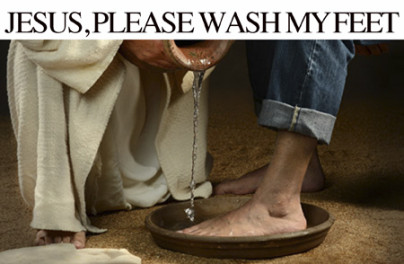
Did Jesus Use Soap?
We don’t know. Jesus may have used some type of soap in the water when He washed His disciples’ feet, but the Bible only tells that “He poured water into a basin and began to wash…” (John 13:5). We can assume that the disciples’ feet were very dirty from the dusty roads, and since soap pre-dates this time, we can reason that it might have been used.
Just for Fun: Historical and Biblical Facts About Soap
Soap has a history dating back six thousand years. The earliest known soap recipe is credited to the ancient Babylonians around 2800 B.C. Throughout history, soap was used medically for the treatment of many skin diseases.
The Bible mentions soap in two places, translating the Hebrew word “borth” to “soap.”
(Jeremiah 2:22) For though thou wash thee with nitre, and take thee much soap, yet thine iniquity is marked before me, saith the Lord GOD.
(Malachi 3:2) But who may abide the day of his coming? and who shall stand when he appeareth? for he is like a refiner’s fire, and like fullers’ soap
ATS Bible Dictionary
Malachi 3:2, Hebrew, borith, the cleanser; in Jeremiah 2:22 distinguished from nitre. It is well known that the ancients used certain vegetables and their ashes for the purpose of cleansing linen, etc. The ashes of seashore plants contain carbonate of potash. Combined with oil or fat the alkalies produced soap; but it is not known in what forms the Jews used them.
Easton’s Bible Dictionary
(Jeremiah 2:22; Malachi 3:2; Hebrew borith), properly a vegetable alkali, obtained from the ashes of certain plants, particularly the salsola kali (saltwort), which abounds on the shores of the Dead Sea and of the Mediterranean. It does not appear that the Hebrews were acquainted with what is now called “soap,” which is a compound of alkaline carbonates with oleaginous matter. The word “purely” in Isaiah 1:25 (R.V., “throughly;” marg., “as with lye”) is lit. “as with bor.” This word means “clearness,” and hence also that which makes clear, or pure, alkali. “The ancients made use of alkali mingled with oil, instead of soap (Job 9:30), and also in smelting metals, to make them melt and flow more readily and purely.”
<*}}}><
More articles of interest:
- Surely this was a righteous man. (song from the centurion at the foot of the cross)
- Are you Glad to see Jesus?
- Why do we call it good [Friday]?
- Is “The Folded Napkin” (an Internet forward) true?
Articles About Salvation
- How can I convince someone that they have eternal security?
- Does Hebrews 6 Teach Salvation Can Be Lost?
- What is eternal security/assurance of salvation? Can I lose salvation?
- What Happens If I Continue to Sin?
- 1 John 1:9 What is the Christian “Bar of Soap?”
- The Gift of SalvaTION: Justification & Imputation
- What you need to know about Sanctification & Glorification
- What are the Doctrines of Imputed, Infused, and Imparted Righteousness?
- Did Jesus Really Mean “Be Perfect?” (Matthew 5:48)
- Ways to Glorify God - Bookmark
- How Should I Understand Salvation? In Simple Terms
*******
Jesus is the Reason this Ministry Exists
At Reasons for Hope* Jesus, we are committed to equipping, encouraging, and empowering Christians to know Jesus better, love Him more, and share their faith. We also reach the lost through our Salvation Page.
With your support, we can continue to provide valuable resources and engaging content. Please join us in our mission by donating today. Your generous contribution helps us expand our outreach of sharing biblical truths and hope in Jesus. Thank you for your kindness and for being an integral part of our mission.
*******
*******
***A Hidden Message in Psalm 23?***
Hidden in the six verses of Psalm 23 are 11 names for Jesus. When you subscribe to our newsletter, we’ll send you The Names of God in Psalm 23 PDF that reveals all 11 names and Scripture verses of comfort and hope (link will be sent in your confirmation email).
 A Room with a View of Eternity—The Last Will & Testament of Jesus Christ Take a seat at the Master's table. Learn about the riches He gives to all who are His. This book will bless and encourage you, give you hope, and help you live in the joy of your salvation and the riches of Christ that are yours.
A Room with a View of Eternity—The Last Will & Testament of Jesus Christ Take a seat at the Master's table. Learn about the riches He gives to all who are His. This book will bless and encourage you, give you hope, and help you live in the joy of your salvation and the riches of Christ that are yours.

The Top Ten Got Questions? in 2023
- The Meaning of NUMBERS in the Bible?
- Was Jesus CRUCIFIED on Wednesday, Thursday, or Friday?
- How was Jesus Like a Worm? What’s the CRIMSON (OR SCARLET) WORM in Psalm 22?
- How are the Shepherd’s ROD and STAFF Different?
- How long did JOB SUFFER?
- What is the Significance of the Wise Men's THREE GIFTS? And were they kings?
- Did The Wise Men Arrive 12 DAYS AFTER JESUS’ BIRTH? Or Was It Much Later?
- Jesus’ Last Days TIMELINE: the Cross and the Resurrection
- The Meaning of COLORS in the Bible?
- Did Jesus Fight Satan to Take Back the KEYS of Death and Hell?
There is much to be learned from those who have gone before us in the faith. Check out our Cloud of Witnesses category that features the words of departed saints who are now with the Lord in glory. Their words equip and encourage us even to this day. Take a few minutes to hear...
- ONLY ONE LIFE, Twill Soon Be Past – by C.T. Studd (1860 – 1931)
- “The Love of God is Greater Far” by Frederick M. Lehman (1917)
- Prayers from Billy Graham
- Who Was Robert Robinson? What’s the Story Behind “Come Thou Fount”
- “Immanuel” — A Poem by Charles Spurgeon (1834-1892)
- Who Am I? A Poem by Deitrich Bonhoeffer (1905-1945)
- Understanding the Everlasting Arms of God, by J.R. Miller (1840–1912)
- 24 Reasons Why I Love America, by John Wayne (1907-1979)
- Give Me Perpetual Broken-heartedness (from The Valley of Vision)
- Abide with Me, by James Smith, 1859
This remains one of our most popular pages viewed.![]()

TOP TEN Videos from Reasons for Hope* Jesus
- Memorial Day BAGPIPES TRIBUTE: Amazing Grace
- RISE AND SHINE and Give God the Glory, Glory!
- WERE YOU THERE When They Crucified My Lord?
- PAUL HARVEY: THE BIRDCAGE
- PRESIDENT RONALD REAGAN: A SOLDIER'S PLEDGE
- Hark! the Herald Angels Sing -- CHARLIE BROWN Christmas
- JOHN WAYNE ~ WHY I LOVE AMERICA
- Jimmy Stewart - Nativity Scene Prayer: Mr. Krueger's Christmas
- THE LEGEND OF THE CANDY CANE - A Christmas Story to Share
- Not by Might, Not by Power, But BY MY SPIRIT says the Lord (Zechariah 4:6)
*****************
